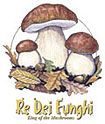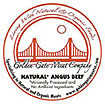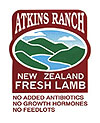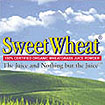By
Eric Gaudet
|
Premières
Côtes de Bordeaux wth the Garonne River in
the background |
Médoc, Saint Estèphe,
Pauillac, Moulis, Margaux, Graves, Pessac-Léognan,
Sauternes, Entre-Deux-Mers, Côtes de Bordeaux, Saint
Emilion, Pomerol, Fronsac, Castillon, Francs, Bourg, Blaye,
… these names are like a music to the ears of any
wine lover. Who hasn't dreamt of them? This is not new.
Bordeaux wines have indeed been famous for about 2,000
years. During the Gallo Roman times, they were already
appreciated in Rome where they used to be served at the
Ceasars' tables or during the rich Romans banquets. We
know this for sure as it has been reported by such Latin
writers as Ausonius, Columelle or Pliny.
They were famous then (the claret) at the Court of England
during the Middle ages, when Guyenne, the Bordeaux province,
belonged to England. There was even a law in the Middle
Ages, enforced until the 18th century, which stated that
the only wines to be brought and sold in Bordeaux were
the ones made on estates belonging to Bordeaux inhabitants.
All this helped to develop the Bordeaux vineyards. Since
then, these names have been renowned all over the world
and their glory has never faded away.
|
Gabaire,
a traditional Garonne River fishing boat |
The
times have changed now, and so have Bordeaux wines and
Bordeaux winegrowers. They have improved a lot. They can
now offer good wines even in the bad or difficult years
and thanks to the economics, they try to find a balance
between the market, the terroir and their production costs.
The wines still need to age, but they are quite drinkable
at a younger age than they used to. The grapes now are
picked riper than they used to be in the past which gives
lower acidity in the wines and not so strong, but rather
sweeter tannins. At the same time, the winegrowers have
much better use and control of the malo-lactic fermentation,
which helps to improve the quality of the wines. The wine
is now made in a less aggressive way, where the nature
is respected. When you see the birds coming back in the
vines, it is a good sign. It means less chemicals, more
life, better grapes and better quality. Most of the time,
the trend is to come back to hand made operations for
leaf tearing or grape picking.
But the Grands Crus can still appear as being too famous,
too intimidating, or sometimes too expensive. This shouldn't
prevent you from buying and drinking Bordeaux wines, as
new pleasures are now offered to you.
Besides the Grands Crus, there are many other Bordeaux
wines and the efforts which have been done for 30 years
are paying off. Many wines which are not famous at all,
which you have never heard of, are really worth tasting
and drinking. Take for example the wines from the Côtes
appellations : Côtes de Blaye, Côtes de Bourg,
Premières Côtes de Bordeaux, Côtes
de Franc and Côtes de Castillon.
All the Côtes have in common is to be located on
the North bank of the river (Garonne or Dordogne), facing
South. This makes them one of the nicest areas to visit
in the region, as you have from the top of the hills there
are some splendid views over the rivers, like the panorama
on Bordeaux and the Garonne which you can enjoy in Bouliac,
from the terrace behind the superb Roman church. While
visiting the region, don't hesitate to leave the main
road which usually follows the river to take one of the
side ones which goes up into the vines to some small villages
from where you will admire the vine landscape. You won't
get lost, and the worst thing that can happen to you,
is ending up in a winery to ask for your way… and
tasting some more wine.
|
Clock
Tower at entrance to Cadillac |
At
a time when the varietal tries to monopolize the attention,
a trip in a wine growing country is indeed a trip through
friendship, through the real values of life, in places
where the love of the earth, of the well done work, a
craftsmanship and almost an art, lead the world. A vine-life
time is about 100 years. Which is to say that when...
|




















